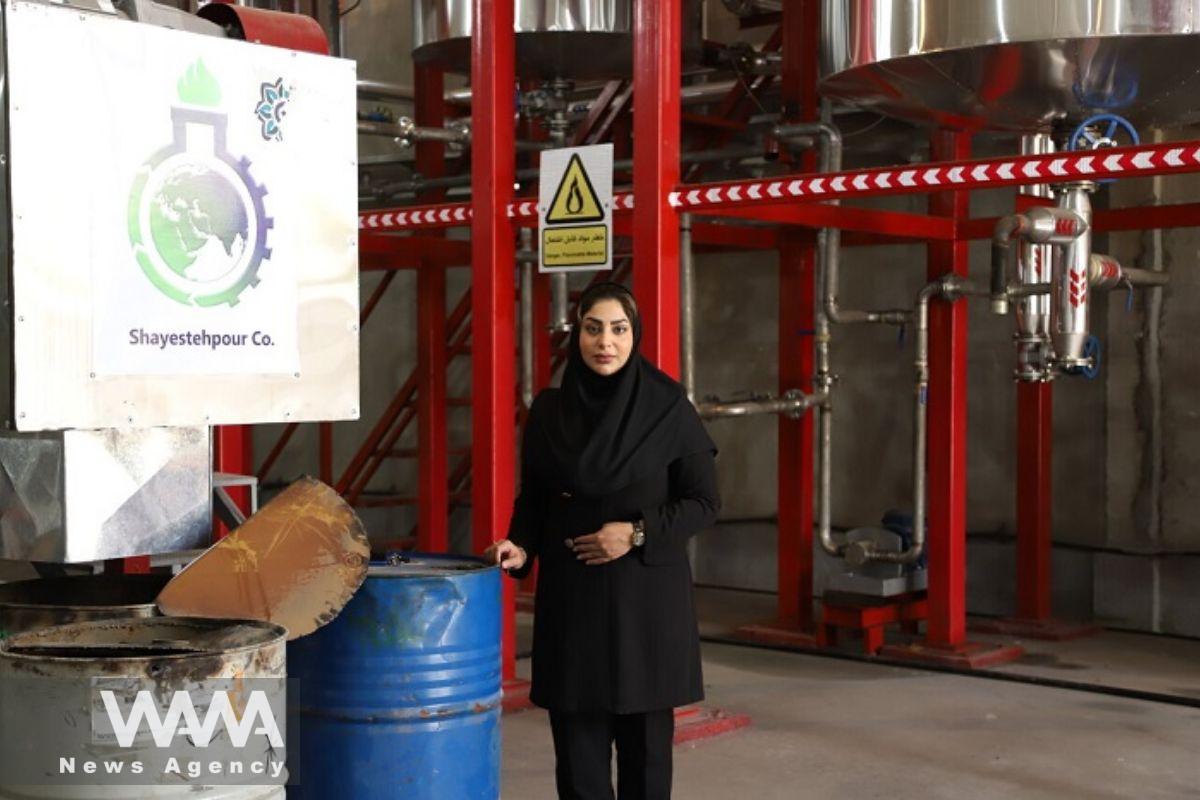Iranian Female Inventor Pioneers Breakthrough: Turning Plastic Waste into Fuel
WANA (Sep 01) – As the world grapples with the pressing challenges of environmental pollution and the accumulation of plastic waste, an Iranian woman named Somayeh Shayestehpour has emerged with an innovative solution to these global crises.
She has developed an invention that not only addresses the energy shortage crisis but also contributes to reducing environmental pollutants and water consumption in industrial production.
This scientific breakthrough, entirely conceived and implemented by Shayestehpour, has received the highest accolades from international scientific communities.
The project involves breaking down polymer bonds and returning these unstable petroleum-based materials to their original state, converting them into sustainable thermal fuel.
Shayestehpour explained that the solid fuel produced in this process comes in the form of tablets, each of which can burn for an hour and a half, generating 11,300 calories of thermal energy—three times the energy output of wood.
She added that this fuel, named PFP, has a combustion temperature ranging from 1,100 to 1,500 degrees Celsius, making it capable of melting metals.
Shayestehpour further elaborated on the reduction of water consumption in industrial production, stating that a 5,000-liter water tank is used solely for cooling and circulation in the production line, which can last for several months.

Somayeh Shayestehpour, Social media/WANA News Agency
Ali Salajegheh, the former head of the Department of Environment, praised this achievement as groundbreaking from both environmental and economic perspectives.
Shayestehpour also spoke about the challenges she faced in her journey, recounting that she was asked to abandon her Iranian identity and carry out the project under a French identity.
She firmly refused, insisting that she would never forget her roots and that the project would be executed in her own country. She even turned down international invitations in order to keep the project in Iran.
According to statistics from the Vice Presidency for Science and Technology in Iran, 25 percent of the management in the country’s knowledge-based ecosystem is led by Iranian women. These women, like Shayestehpour, are paving the way for innovation and progress, contributing significantly to the advancement of Iran.












